Price list
40,000
70,000
50,000
80,000
60,000
90,000
20,000
20,000
30,000
30,000
10,000
15,000
20,000
17,500
22,500
27,500
50,000
110,000
20,000
Tips before a medical examination
How to Preparate for a CT Scan
There are no specific restrictions for a computed tomography (CT) examination. In most cases, no special preparation is needed prior to scans of the head, neck, and chest.
Fasting is not required, and you may continue taking any prescribed daily medications.
If you plan to undergo the examination under a state order or insurance, please arrange for compensation with the appropriate department; otherwise, the procedure will only be available on a paid basis.
How to Prepare for Magnetic Resonance Imaging Angiography
What are the contraindications for magnetic resonance imaging (MRI)?
Joint prostheses or other orthopedic devices may be considered contraindications for MRI. However, they are usually made of materials compatible with MRI, so in most cases, they do not prevent the examination.
If you have joint prostheses or other orthopedic devices, you must provide the following documentation to the MRI Service before the examination:
- A discharge summary (epicrisis)
- MRI results of the same or adjacent area post-implantation
- Implantation certificate
- Equipment passport, including the manufacturer's brand and model series
- Documentation proving MRI compatibility if the prosthesis is more than 20 years old
Stents, cava filters, and vascular shunts implanted in the body are not considered contraindications for MRI examinations.
In most cases, pacemakers are contraindicated for MRI. However, some models allow temporary deactivation during the procedure, but this must be addressed with an arrhythmologist beforehand.
Unlike portable hearing aids, cochlear implants are often incompatible with MRI, as the equipment may get damaged, particularly for scans above the knee.
Postoperative clips, sutures, and metal wires following sternotomy are generally compatible with MRI and are not considered contraindications.
From the second trimester of pregnancy, MRI can be performed without restrictions.
For gynecological conditions, the examination is typically scheduled for any day after the menstrual cycle ends.
Preparation Guidelines:
- Do not eat for 3-4 hours before the examination.
- Bring any previous diagnostic results (discs, images, lab test results) along with relevant medical documents, such as discharge summaries (epicrisis).
- A bowel cleanse may be required before the MRI, and the medication regimen should be discussed with your physician.
- Avoid eating for 6 hours and drinking fluids for 2 hours before the procedure.
If the examination is covered by a state-funded program or insurance, ensure approval from the relevant service. Otherwise, the examination will only be conducted on a paid basis.
Siemens Healthineers: Somatom go.Up
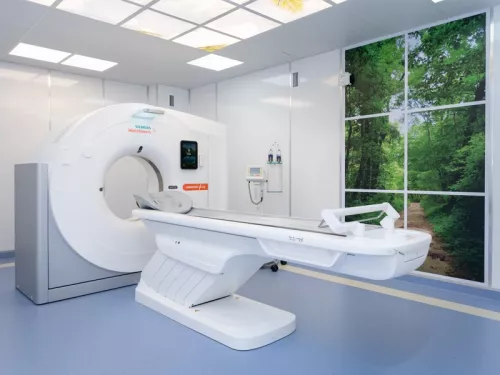

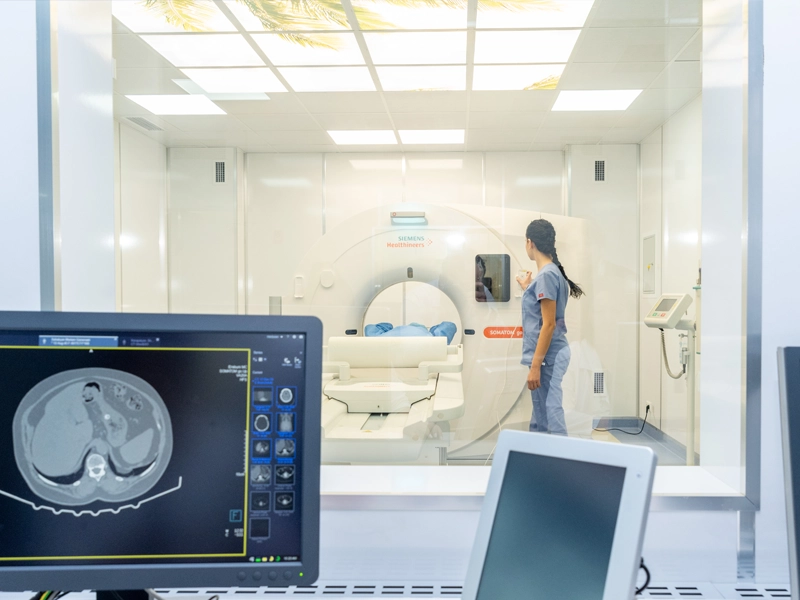
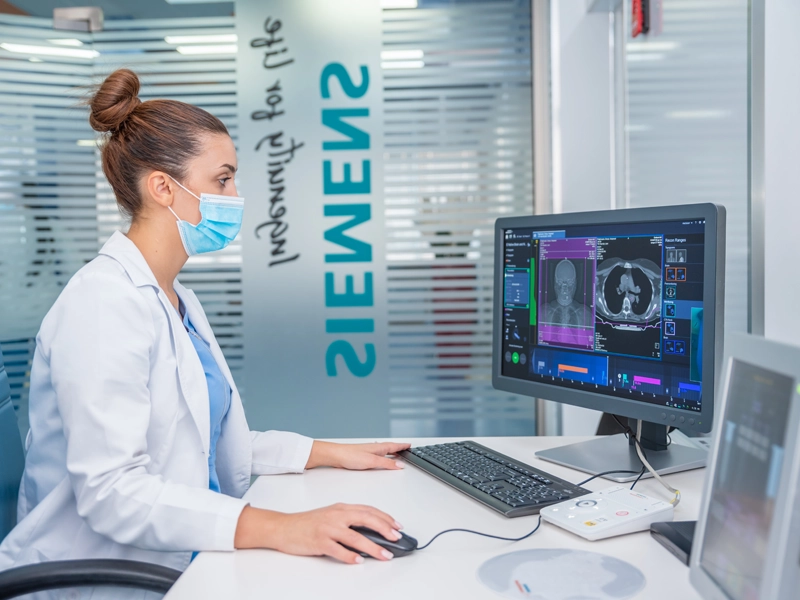
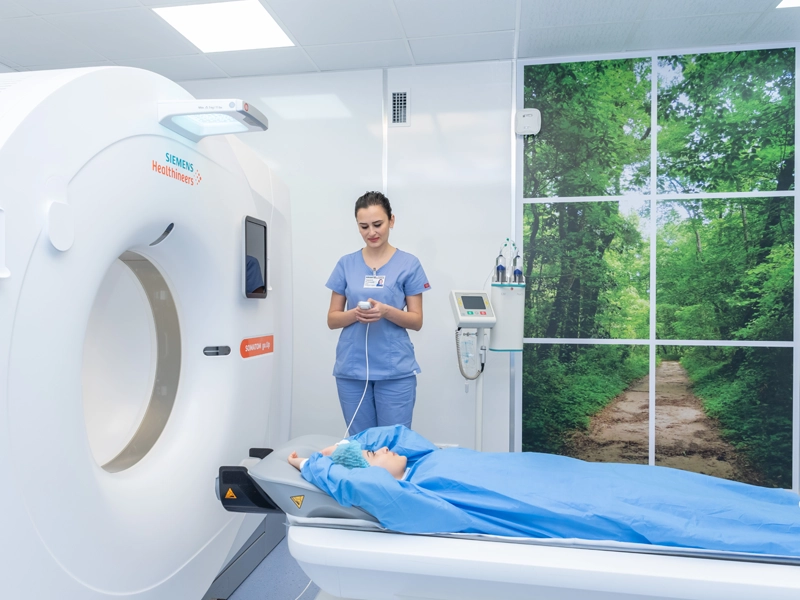
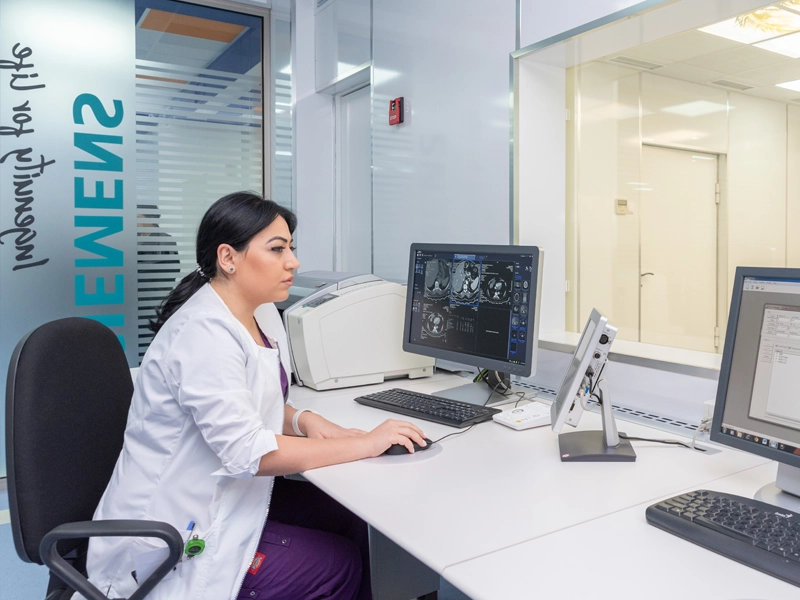
.webp)

